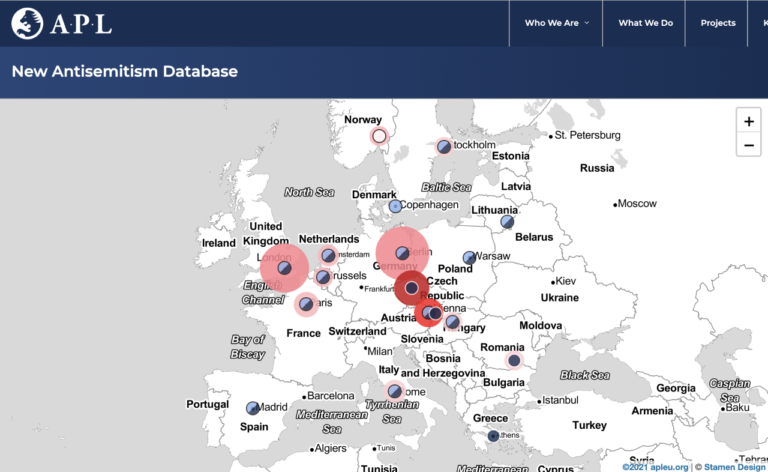According to the Israeli BESA Center’s analyst, the famous Jerusalem Declaration on Antisemitism merely uses the fight against antisemitism as a tool to vilify Israel.
The real object of the Jerusalem Declaration on Antisemitism (JDA) adopted in March 2021 was to use the fight against antisemitism as a tool to vilify Israel – says the researcher of the Israeli Begin-Sadat Center for Strategic Studies. According to Dr Dana Barnett, in reality, the document wants to „clarify” the antisemitism definition of IHRA, which in their belief, is insufficiently obsequious to the Palestinians.
As APL reported, the object of the document, presented by more than 200 international scholars and Holocaust and antisemitism researchers, is to give an alternative to the widely adopted antisemitism definition created by the International Holocaust Remembrance Alliance (IHRA).
The key question is the judgement of Israel. According to IHRA, criticising the Jewish state is not in itself antisemitic, but it is very much so if „the State of Israel as a Jewish community is attacked.” Therefore, the IHRA regards the depiction of Israel as a racist, „apartheid state” to be antisemitic. However, pro-Palestinian activists and anti-Israel groups refuse to consider it antisemitic to judge Israel (which they regard as illegitimate), to deny the autonomy of Jews, and their anti-Zionism.
Barnett recalls that the JDR accuses the IHRA of blurring the „difference between antisemitic speech and legitimate criticism of Israel and Zionism.” As a result, the IHRA definition „delegitimis[es] the voices of Palestinians and others, including Jews, who hold views that are sharply critical of Israel and Zionism.”
According to Barnett, „the JDA makes its political agenda clear by declaring its support for the Palestinian demand for justice and the full grant of their political, national, civil and human rights, as encapsulated in international law’. Similarly, the JDA wishes to ‘support arrangements that accord full equality to all inhabitants ‘between the river and the sea,’ whether in two states, a binational state, unitary democratic state, federal state, or in whatever form.'” Nevertheless, this is a euphemism, language used by the PLO (Palestine Liberation Organization). It means they would diminish Israel and create a unified Palestinian state, where Jews could live as a minority, living on the sufferance of the Muslim majority.
The author believes that the key problem with the JDA is the claim that „Criticising or opposing Zionism as a form of nationalism” is not antisemitic. It betrays its bias by failing to reject any form of nationalism other than the Jewish one, which is pure racism. She considers the claim of the JDA disingenuous that it is not antisemitic „to compare Israel with other historical cases, including settler-colonialism or apartheid”, while it clearly is. This claim ignores the fundamental fact that Jews are not „colonial settlers” but rather the indigenous inhabitants of the Land of Israel. Similarly, the JDA legitimises the anti-Zionist BDS movement by stating it is merely a non-aggressive boycott movement. „Quite clearly, the document is intended to legitimise the anti-Zionist boycott movement against Israel”, says Barnett.
Ironically, after the JDA bent over backwards to appease the Palestinians, a leading Palestinian group rejected the JDA because it, for example, accepted the fundamental premise that Jews have a right to a Jewish State.








